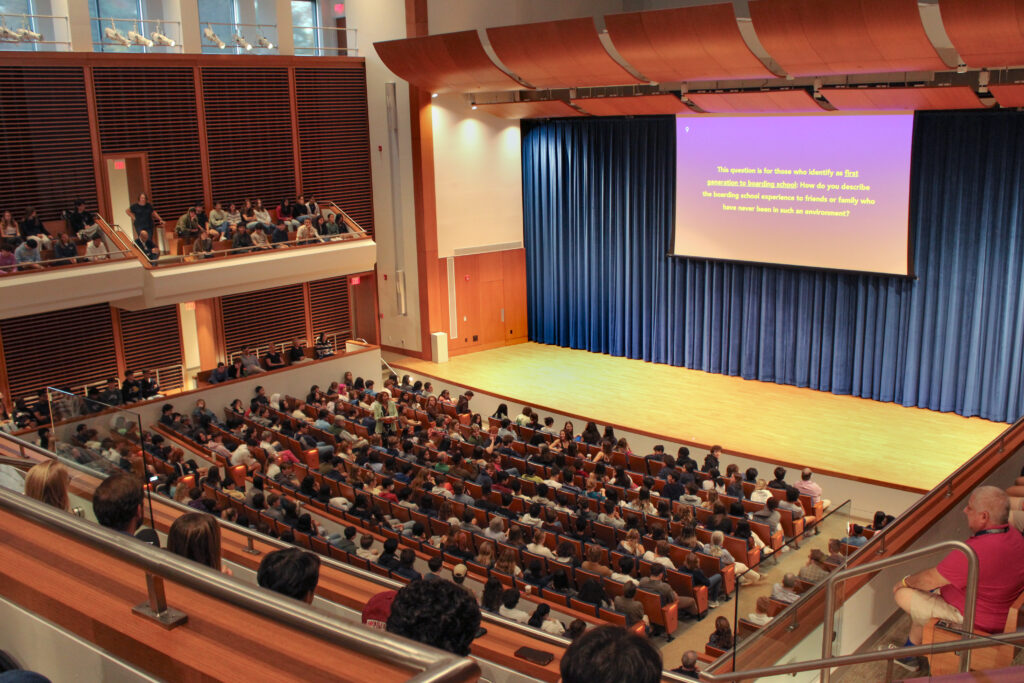
Students discuss first generation identities at Choate.
By Reinah Lee ’26
At Choate, a community that includes members from many different cultural and socioeconomic backgrounds, the nuances of a first-generation identity can easily be overlooked. Recognizing the need for discussion, Choate hosted its first Community Conversation of the year on October 27 in Colony Hall, focusing on the experiences of first-generation immigrants, college-bound students, and boarding students.
Dean of Equity and Inclusion Dr. Rachel Myers shared that the community had requested the topic through topic suggestion forms and spoken feedback, which made it an important conversation to have. “This tells me and my office that these first-generation identities are important to a number of our community members,” she said.
The discussion differed from previous years in that it opened with pre-selected questions by the Equity and Inclusion team rather than random questions drawn by students in the audience. According to Dr. Myers, the team made the switch because “it came up through feedback collected from advisers last year that sometimes the first question selected felt ‘too deep’ to get the conversation started.”
Among the speakers was Rodrigo Chon Him ’25, a first-generation immigrant and boarding school student from El Salvador, who reflected on his academic journey at Choate and addressed the struggles of engaging in history courses with his first-generation identities. Chon Him described feeling disconnected due to his unfamiliarity with American history, saying, “I saw my peers participate in the class, and I was just lost.”
Despite the challenges he has faced, Chon Him has found support through clubs such as the Hispanic Latine Forum and Asian Student Association on campus. “It’s nice to have a sense of being home even though I was miles away from it. Those are sources that have helped me out,” Chon Him said. By sharing his experiences with the School, Chon Him hopes to support his fellow first-generation community members and foster an inclusive environment.
Rella Wang ’26, a first-generation international boarding student, spoke at the conversation about feeling distant from her culture and family while being away from home. “A lot of people were trying to say the positivity of being the first generation, like how many opportunities they get. [But], I feel like I’ve missed a lot of parts of being at home,” she said.
Wang felt there was a need to clarify topic-specific terms at the beginning of the conversation. She highlighted the ambiguity surrounding the term “first-generation immigrant,” saying, “I feel like people had confusion about first-generation immigrants. It was kind of blurry.” Still, Wang valued the broad nature of the talk’s topic as she felt “that it gives more students a chance to share their experience.”
Wang suggested that rather than solely asking members to share their experiences, future Community Conversations could benefit from narrower questions that delve into specific challenges and the ways to approach them.
Community Conversations aim to keep the School body educated and heard. These events are evolving, with each one striving to enhance the inclusivity and understanding of the School’s diverse body. Upcoming Community Conversations this year include Political Identity, Racial Identity, and Arab and Middle Eastern Identity. “This is our community, and everyone’s voice does matter and deserves to be heard if one is moved to share,” Dr. Myers said.




